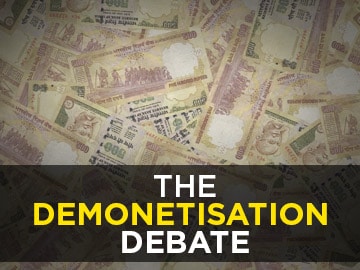Demonetization move 'fantastic', but near-term growth to slow: HSBC India's CEO
Demonetization will need to be followed up by more reform to have desired impact


HSBC India’s chief executive Stuart Milne lauded Prime Minister Narendra Modi’s move to demonetize the pre-existing stock of Rs 500 and Rs 1000 currency notes, announced and implemented earlier this month.
“Leaving aside execution challenges, demonetization is a fantastic move. Part of the government’s move is to capture black money, but part of the move is to widen the tax net. It is important because the government’s long term objective is to reduce the tax rate,” Milne told Forbes India.
“That will be a long term positive for the economy and promote investment,” he added.
Milne however warned of a negative short-term impact in terms of a slowdown in consumption, till the availability of cash improves. “That will have an impact on GDP,” Milne said.

The bank’s chief India economist Pranjul Bhandari warned about a slowdown in growth. “We are currently staring at a mixed bag. While demonetization followed by remonetization (issuance of new currency notes) could be positive for inflation and banking sector liquidity in the short run, effective money supply and growth will take the bullet,” Bhandari said in a recent mote to clients.
She estimates GDP growth in India could fall by 0.7-1.0 ppt (percentage point) over a year, with the maximum impact in the immediate two quarters, which will see a large contraction in effective money supply.
India’s economy grew by 7.1 percent in the three months to June and remains one of the fastest growing large economies of the world.
Most experts and analysts had lauded Prime Minister’s Narendra Modi’s move to demonetize these notes, in a surprise move announced on November 8. The rationale of the government was to attack counterfeit cash in the system (which allegedly being used to fund terror activity) and clean up the system, off “black” money. Since the decision, Indian banks have seen unprecedented rush as thousands have queued up at various banks seeking to exchange old notes for the new ones, while ATMs have been closed as they are being recalibrated to accommodate the new currency notes.
“There is still the same number of Rs 100 notes in the economy as there were yesterday. The government has not touched these. Yet people are lining up outside banks to get Rs 100 notes. There is no logical reason for that,” Milne said.
“Long term gains will be realized if this bold move (of demonetization) is followed by other reforms (like incentivizing digital adoption and tackling other shelters for unaccounted money),” Bhandari said in the research report.
Bhandari stressed that if the government follows up this move with a spate a reforms, the gains would be immense, as the parallel economy moves towards official. “Well begun is half done, but the other half needs work,” she said.
The genesis of “black money” in India started in the 1970s when personal taxes were extremely high, which forced people to hide their income and seek ways to generate more funds and not pay tax on them.
“This is a battle in a long war,” Milne said about India’s move to tackle the black money problem and corruption. “There is no one silver bullet, there are several measures. What the governments needs to preserve at this stage is goodwill,” he said.
First Published: Nov 17, 2016, 19:24
Subscribe Now